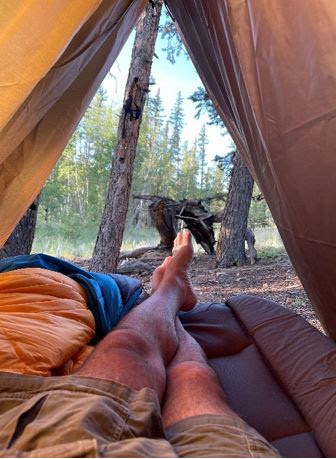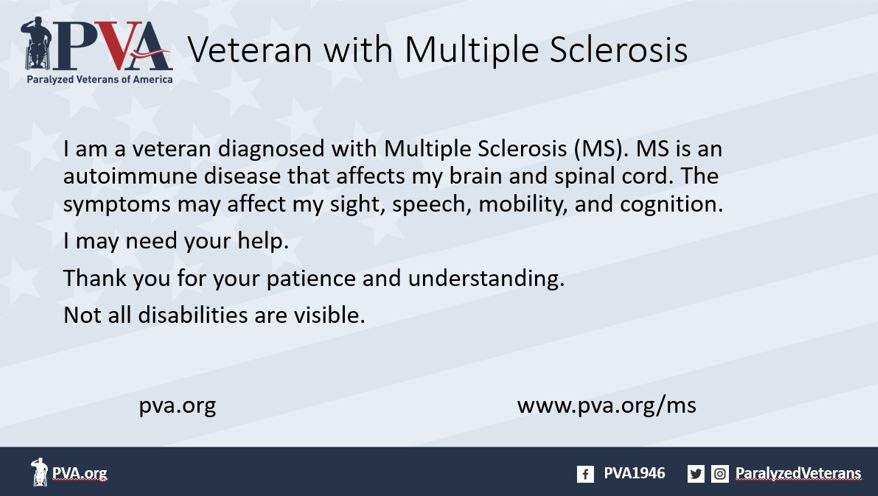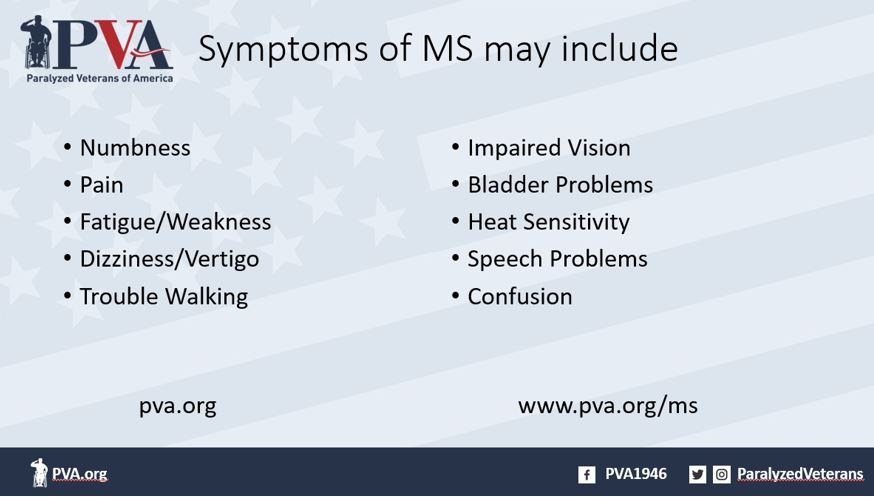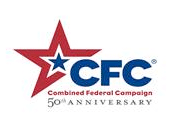  Screenshot from our monthly video callMS Newsletter Number 2 – We’ve got some momentum building! Screenshot from our monthly video callMS Newsletter Number 2 – We’ve got some momentum building!Happy 2023! I hope you are looking forward to the exciting year ahead of us. We had a great first MS committee meeting in January and the enthusiasm for growth is present throughout the entire organization and in each PVA Chapters. Thanks to those who stepped up to become MS Leads in their respective Chapters and a reminder that there are still many opportunities for other roles within PVA and specifically pertaining to our MS efforts. However, the most important thing any of you can do is take care of yourself – we need you here if we are to help anyone! Now that we are formed, it’s time to execute. Below are a few things to be aware of: • March is MS Awareness Month! MS Walks are taking place across the country and our Chapter MS leads are looking for help in coordinating our participation in these walks. • Over the next few weeks, each PVA Chapter will receive a small supply of PVA MS Vet t-shirts to hand out to members participating in MS walks and other MS-themed events. If your Chapter needs more, please email Jerrod Harris at JHarris@colonialpva.org. • In May, the Consortium for MS Centers (CMSC) will be holding their annual meeting in Denver, Colorado. CMSC has graciously offered a free booth to PVA in their exhibit hall. Several MS Committee members, as well as some PVA staff, will be in attendance. We still have a couple of slots open, if you would like to be considered as an attendee, please email me at Izzy@mscpva.org. • In August, PVA’s annual Healthcare Summit and Expo will be taking place in Orlando, Florida. Last year, there was an entire track devoted to issues relating to MS and this year there are plans to do it again. Additionally, we will holding our MS Committee meeting at the Summit. A few of us from the committee will be attending and spots still exist for a few more members. If you would like to be considered, please email Izzy@mscpva.org. Sincerely, Izzy Abbass PVA MS Committee Co-Chair We Need Your Input… Join an MS Committee TODAYAs we work on initiatives, we need more input and assistance from you. While we don’t need you to get involved with everything, we do need you to think about doing something! Check out more about our MS Committee Teams below.  Recreation Team Recreation TeamWe know MS presents unique challenges when it comes to participating in traditional sports and recreational activities. Among some of the events we’d love to coordinate or highlight include: a PVA MS Committee Retreat, similar to the annual PVA Women Veterans Empowerment Retreat, as well as Chapter-led events like local MS Walks. This team will work with PVA’s Sports & Recreation Department to explore and organize new opportunities for Veterans living with MS.  Newsletter Team Newsletter TeamWe are happy to announce that Ben Hoffmeister from the Mid-South Chapter and Sarah LaBrada from the California Chapter have stepped up to lead our MS newsletter efforts. If you are interested in helping out or have questions about the teams, email us at MSCommittee@PVA.org.Interested in becoming a PVA MS Mentor? We Need You As a Veteran with MS, you are in a unique position to help those whose world may have been turned upside down by their own recent MS diagnosis. PVA’s MS Peer Mentor program hopes to bring Veteran role models and peers together to help people cope and thrive with a diagnosis of MS. No one understands what it is like to live with MS better than another Veteran with MS. In partnership with the Christopher & Dana Reeve Foundation, PVA is providing education on peer mentorship through an accredited on-line training program recognized by the VA. If you are interested in becoming a Peer Mentor, please email Hack Albertson at HAlbertson@pva.org.  Upcoming Events Upcoming Events MS Committee Newsletter Team Meeting (virtual): March 23 June CMSC Convention (Denver, Colorado): May 31- June 3 PVA Healthcare Summit and Expo (Orlando, Florida): August 14-17  MS Blocked My View of the Mountains- Never AgainDespite the doctors in my life and everything else I’ve learned, the wilderness is still my favorite medicine. I’ve always loved camping out in the woods and mountains. Beginning as a kid romping around the Big Thompson River in Colorado, I have spent countless nights under the stars. I served 15 years on a volunteer mountain rescue team, climbed a number of peaks including a mountain in Borneo, and of course, lived outdoors during much of my time an Army infantry unit (though, we didn’t call it camping at the time). Recently, I’ve come to realize how much I miss it. MS Blocked My View of the Mountains- Never AgainDespite the doctors in my life and everything else I’ve learned, the wilderness is still my favorite medicine. I’ve always loved camping out in the woods and mountains. Beginning as a kid romping around the Big Thompson River in Colorado, I have spent countless nights under the stars. I served 15 years on a volunteer mountain rescue team, climbed a number of peaks including a mountain in Borneo, and of course, lived outdoors during much of my time an Army infantry unit (though, we didn’t call it camping at the time). Recently, I’ve come to realize how much I miss it.That’s why last month, for the first time since my MS diagnosis in 2017, I went camping. I’ve always wanted to go. I’ve driven in the mountains of Colorado with my wife several times – even made my way to a panoramic spot to gaze up at the Indian Peaks with the aspens just starting to turn their bright fall colors. However, I had this trepidation of camping again not because of wild animals or the unpredictable weather, but because of the limitations imposed by MS. It all came down to one thing: getting up in the morning. The effort to get out of my sleeping bag and begin moving in the morning kept me apart from an activity I’ve loved all my life. Like most of us with MS, I am most at ease lying down. The effort to stand and stay upright is a constant challenge . It’s not that I can’t do it, but it’s a lot of effort, and that struggle prevented me from venturing too far out. No more. That first morning waking up in the mountains reminded me of what I had been without for far too long. The sounds of the insects and the breeze moving across aspen leaves was magical. The solitary ant moving across the ground by the fire pit mesmerized me as it negotiated around blades of grass and pine needles. I loved the warm rays of the sun on my neck contrasting with the coolness of the breeze. I had missed so much that my eyes watered as I sat there in the shade-dappled sun looking at everything around me. The deep , refreshing breaths I took reminded me how the smells of the forest are much more intoxicating than sipping wine or whiskey. My best friend was with me on this trip. He and I had spent Fortunately, he didn’t care. He was happy just to be outside and excited I was willing to go. We had a fantastic time and will again. And while I let five years slip by without the happy experiences of camping, I won’t lose another year. Come join me, and let’s get out there in nature. Izzy Abbass, Mountain States ChapterLooking for a Good Explanation of MS to Provide Others?Multiple Sclerosis Awareness Month is a time for everyone to learn more about the neurological disease that currently affects almost one million Americans. About 200 people are diagnosed with MS each week and it is becoming more prevalent every year. It affects all races and nationalities, but is more prevalent in areas further from the equator. Both men and women are impacted, but four times as many women are stricken with MS than men. Despite years of intense research, the cause of MS is still unknown. Risk factors include smoking, stress, low vitamin D levels, inflammation, and obesity. MS is an autoimmune disease that affects the central nervous system, the brain, and the spinal cord. With MS, a person’s own immune system mistakenly attacks their myelin, the outer protective covering of nerves, the brain and the spinal cord. Myelin enables nerve signals to travel effectively without getting short- circuited like the electrical current in a worn electrical wire. Where and how much myelin is destroyed by the immune system determines the type and severity of symptoms a person will have. As such, people with MS have a wide variety of symptoms The most common are fatigue, numbness and tingling, loss of balance and dizziness, spasms, tremor, pain, bladder problems, bowel problems, vision problems, loss of strength and mobility, depression, and anxiety. When someone is suspected of having MS, doctors employ a number of tests to confirm the diagnosis. While there is no specific blood test to diagnose MS, doctors may order blood tests to exclude other diseases that may mimic MS. A spinal tap is often performed to identify antibodies indicative of MS in the cerebral spinal fluid. Evoked potential testing can also be performed to measure abnormalities in nerve transmission seen in MS. Since the widespread use of MRIs, the diagnosis of MS has become more straightforward. Now, in most cases, a diagnosis of MS can be made based on a pattern of symptoms consistent with the disease and MRI changes that confirm it. There are four types of MS often starting with Clinically Isolated Syndrome (CIS). In CIS, a person has neurologic symptoms that last at least 24 hours and usually either totally or partially resolve. While individuals who develop CIS do not technically have MS, they are at risk of developing the full-blown disease. To delay the progression to MS, these patients are currently treated with disease modifying therapy. The most common form of MS is Relapsing- Remitting MS (RRMS). in which there are attacks followed by remissions. 85% of people with MS are initially diagnosed with this form. Many patients with RRMS will subsequently develop Secondary Progressive MS (SPMS), where the clinical course is relentlessly downhill without any significant remissions. The last type of MS is Primary Progressive MS (PPMS), in which neurologic function progressively worsens from the time of diagnosis. Unfortunately, there is no cure for MS. However, in recent years more than a dozen Disease Modifying Therapies have been developed that can significantly slow the progression of MS and limit disability. They are particularly successful with RRMS, less so with the progressive forms of the disease. They are available in oral formulations, as well as injectable and infused types. Hopefully, continued research will uncover the cause of MS and a cure will be developed. Stephen Yerkovich, MD Chief of Medical Services Paralyzed Veterans of AmericaComing Soon!As was discussed in our February MS Committee meeting, the PVA National office is developing wallet cards identifying you as a Veteran with MS and highlighting some of the numerous issues that come with the diagnosis. While we hope you never need it, when you are having difficulty, this card is an easy way for you to let those around you know what you are dealing with and why you may not be on top of your game in any given situation. These cards will be free to all Veterans with MS and made available in the coming weeks. The card will look as follows:   National MS Committee Members Hack Albertson – Co-Chair National MS Committee Members Hack Albertson – Co-Chair Izzy Abbass – Co-Chair Jerrod Harris – Chapter MS Lead Liaison Mike Partridge – Committee Member Ben Hofmeister – Committee Member and Blogger StaffCheryl Vines – Director of Research and Education Juliet Pierce – Associate Director of Medical Services  To contact your chapter MS lead, please call or email Jerrod Harris at 443-814-3777 or jharris@colonialpva.org or reach out to your local PVA Chapter office.PVA Chapter MS Leads (By Location and Name) Arizona To contact your chapter MS lead, please call or email Jerrod Harris at 443-814-3777 or jharris@colonialpva.org or reach out to your local PVA Chapter office.PVA Chapter MS Leads (By Location and Name) Arizona Anthony Murray California Sarah LaBrada Bay Area and Western Richard Hagan Bayou Gulf States Central Florida Sharona Young Colonial Jerrod Harris Buckeye Joshua Maley Florida Cal-Diego Florida Gulf Coast Gateway Rose Ganz Great Plains Shayna Goerdt Iowa Jeff D. Cook Kentucky Indiana Keystone Peter K. Townsend Lonestar Michigan Tim Agajeenian Mid America Rick O’Mara Mid Atlantic Kathy Tilbury Mid South David Humphrey Minnesota Scott C. Little Mountain States Izzy Abbass Nevada Jason Kelley New England Chuck Houle North Central Perry Grimme North West Maevette Perkins Puerto Rico South Eastern Robert L. Taylor Texas Joe Bludeau Tri-State Dan Service Vaughn Cheryl Gerdes West Virginia Kelly Goddard Wisconsin Amera Schaefer |
Spring 2023 Newsletter
Uncategorized / by admin / Leave a Comment
Contact Us
12200 East Iliff Avenue
Suite 107
Aurora, CO 80014
303-597-0038 | 1-800-833-9400
Fax: 303-597-0039
Email: Info@mscpva.org
For Federal Employees 15875


Leave a Reply